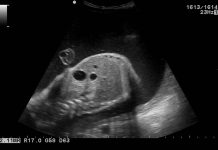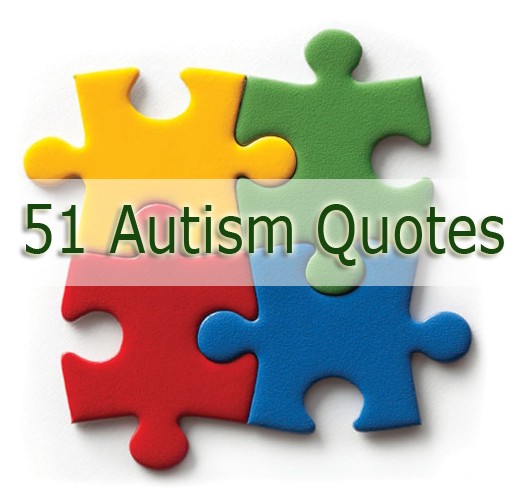Autism is a developmental disorder of the brain which generally arises during the first 3 years of age. Normal development of the brain is affected by autism. Autism more or less affects the social, behavioural and communication skills of children. Children with autism suffer from lack of social and communication skills required. Along with these,symptoms of autism, include repetitive behaviour, self-infliction and sometimes seizures have also been noted. Autism is sometimes mistaken to be mental retardation.

The number of people with autism is unknown. Statistical results show that the number of people with autism is increasing. This is perhaps due to the introduction of new and successful methods of diagnosis.
Autism as is primarily used is not a single disorder with some symptoms. But it is a complex disorder with a wide range of symptoms and disorders. In fact, a new term Autism Spectrum Disorder has been coined to convey the various types of disorders and symptoms which can be associated with autism. Each case of autism may be different from the rest of the symptoms. It is not necessarily true that two or more autistic people share the same symptoms. This is the reason why autism spectrum disorder is being used more and more.
Autism in Infants – Symptoms, Risk and Detection
Incidence of autism
More often boys are more prone to autism than girls. The statistics on incidence of autism show that the numbers have been increasing over the years. According to studies conducted by the CDC, the number of children with autism in 2000 and 2004 was 1 in 150 and 1 in 125, respectively. In the year 2008, the number of children with autism stood at 1 in 88. This number is almost twice as much as the 2000 estimate.
Increasing number of autistic cases is of a concern not only to the health departments but also for many other departments which include the education department, universities, employment and ultimately to the economy. Due to the special needs, the education department has to create an environment which is more and more suitable for children suffering from autistic spectrum disorders.
Autism is seen more in boys than in girls, almost five times more. While according to one study, 1 in 54 boys is suffering from autism and in girls 1 in 252 is suffering from autism.
First Signs of Autism
Early detection of autism can have a major impact on the future of a child. The later the detection of autism spectrum can also be very beneficial but not as much as early detection does.
Some of the basic things that are noted by many parents in the initial stages include
- Lack of communication both verbal and non-verbal.
- Not being able to relate to things around them.
- Cannot think and behave in a regular manner.
Symptoms of autism
The symptoms of autism can be observed in a child from the ages between 12-24 months. The maximum time around which the symptoms develop by the time the child is about 3 years old. The onset of symptoms can be quite observable during the initial years, but in some cases, when the child seems to be growing normally and all of a sudden a major regression is noticed.
The symptoms include
- Pretending to play: Due to their poor social and communication skills, autistic children may not have too many friends. Also the games that they play are mainly ritualistic in nature. This is quite opposite from the regular games that children play which are more or less spontaneous such as running or using sports equipment as props.
- Social behaviour: Depending upon the severity, the autistic person may pass offensive comments or speak about unrelated topics. Apart from the unusual or unconventional talk, autistic people may maintain very little eye contact. Many say that talking to them is more or less a one-way route.
- Apathetic towards others: Autistic people can also not be very empathetic towards other people. The ability to sympathetically respond to another person is basic to human nature. We cannot expect the same kind of behaviour from autistic people. Their general sympathetic response is much less when compared to regular people. This behaviour can upset regular social interactions, making less and less sought by their friends. But in reality, their ability to feel is very much like normal people. Lack of social and communication skills hamper their apathy badly.
- Sensitivity to light and sounds: Autistic people are most likely to be very sensitive towards light, various sounds and smells. They cannot handle loud sounds and bright lights. They are also sensitive to smells and odours. Their inability to prepare for the sudden changes in light and perhaps sounds can be the reason for sensitivity.
- Communication: Apart from the communication skills of autistic children can be different altogether from normal people, their way of speaking is also different. Depending upon the severity of autism, their speech pattern is affected. Severe autistic people might not speak at all. When they speak, they usually repeat the words of others quite a few times in their speech. Irrespective of the situation, autistic people might speak very formally, unlike normal people, who speak informally unless told to do otherwise.
- Repetition: Repetition is another trademark behaviour found in many autistic people. Even during childhood, they spend most of their time doing things all over again, sometimes in an obsessive manner. Even simple things or routines are repeated over a course of time.
- Reluctant and resistance to changes from routine: Autistic people are also very much obsessed with their routine. Every day, they do things in a self-imposed order. A slight change in the order would be upset them very much. For example, if the family is planning to go out for a holiday, then obviously there would a disruption in the routine. Autistic people would resist any such changes, even the very simple ones.
- Unpredictable memory: The memory of autistic children might be unpredictable. In some cases, they might actually learn things much faster than others, but the chances of forgetting it are much higher. They might also have to learn things very hard before they learn how to learn it the easy way.
- Spends time alone: Most autistic children with poor communication and social skills tend to spend time in solitude.
- Imagination: Another issue with autistic children is the lack of imagination. The lack of imagination can sometimes hamper their ability to play games with peers and can also manifest into difficulty of transforming symbols into language.
- Self-inflicting behaviour: Some cases of autistic children with an attitude towards self-inflicting wounds have also been noted. Attempts such as poking eyes, skin picking, hand biting and head banging have also been noted.
How to detect early?– Autism in Infants
Parents need to take certain actions as soon as they observe any or at least few symptoms of autism. These include
- Keep a close eye on your child’s development: It is good to observe the child for autism related issues. These issues include social and communication skills that he or she develops during the first two years. Any deviation from normal behaviour is good enough for checking.
- Take appropriate action: There is no need to worry if your child starts a little late. But, if the trend continues with no babbling till 12 months of age, not a single word by 16 months and not even two letter words till 24 months of age, then it’s a concern and you should immediately consult your pediatrician and a child psychologist, if required.( Mayo Clinic)
- Do not procrastinate: Procrastination or neglect can make the matters worse for your baby. Prompt action is required because in autism spectrum, the sooner the detection, the better the chances for your baby to lead a normal life. Problems such as these would not be solved automatically with age. But, they would worsen with age.
Resources for Autism
Web sites
- Autism Society of America
- Autism Watch
- Centers for Disease Control and Prevention: Autism spectrum disorders
- Autism Speaks












